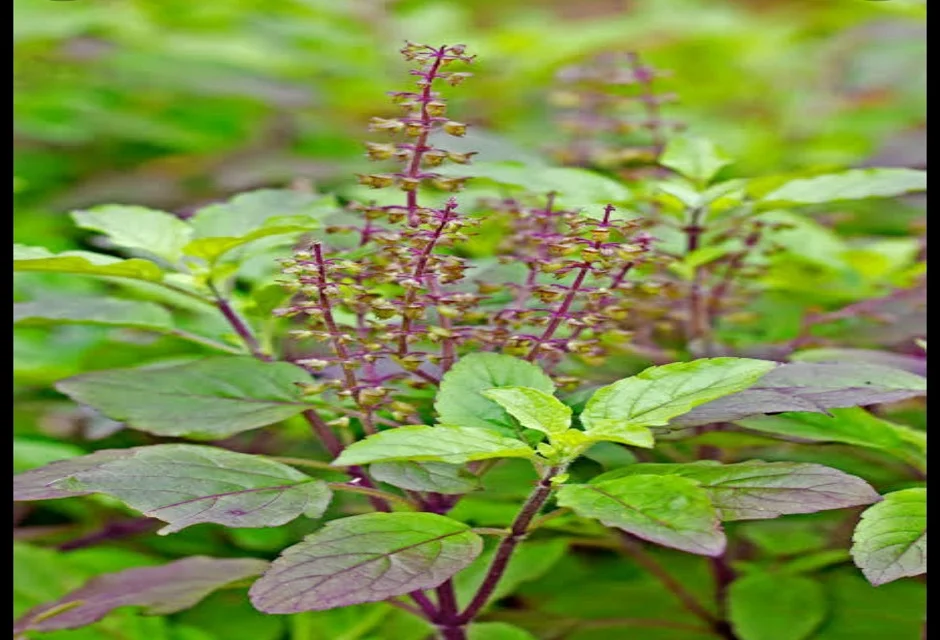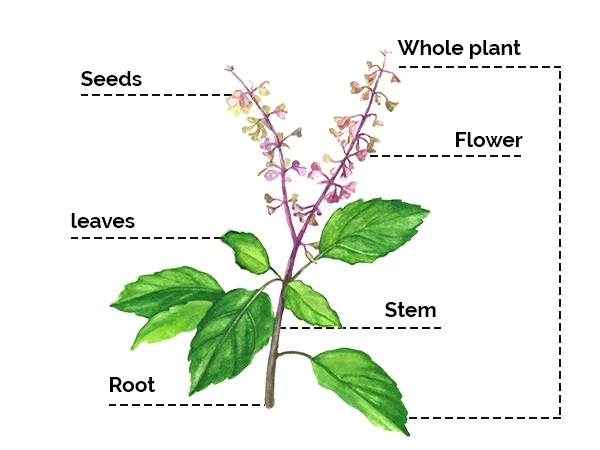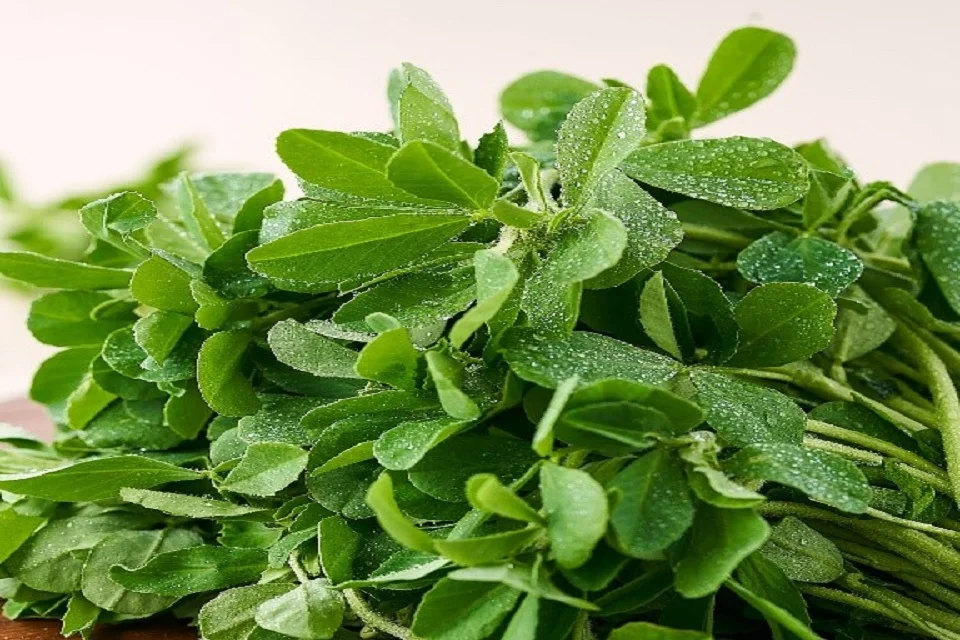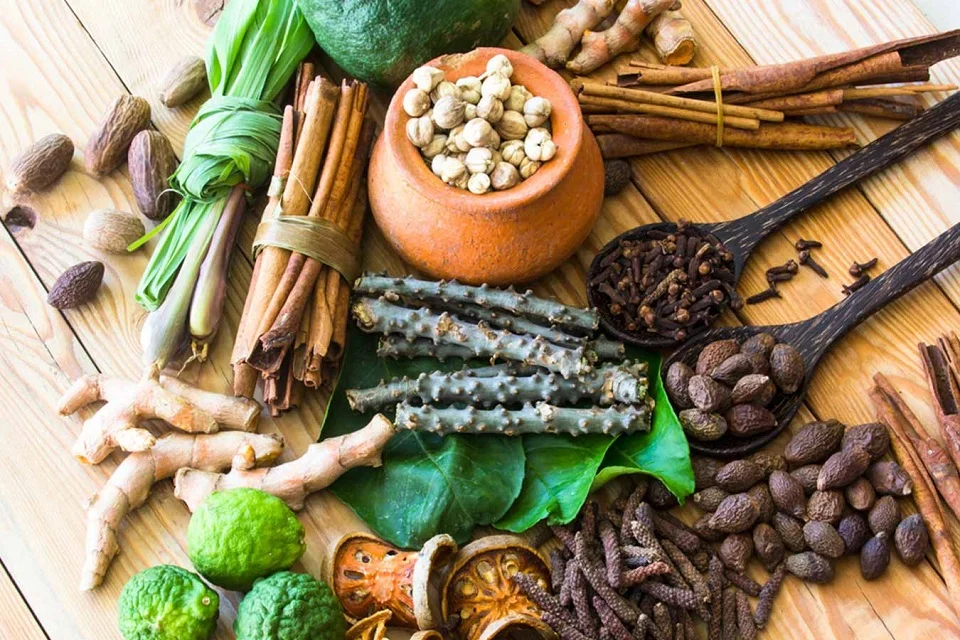Benefits of Tulasi, dosage, side effects, and how to use it?
What is Tulasi? Tulasi is an auspicious and essential medicinal plant in Ayurveda. The word Tulasi means Matchless. There are various …

What is Tulasi?
Tulasi is an auspicious and essential medicinal plant in Ayurveda. The word Tulasi means Matchless. There are various health benefits of tulasi since ancient times in India, as well as in Greek, Roman, and Unani systems. In Hinduism, Tulasi is considered an incarnation of the goddess Lakshmi and is worshipped in households and temples.
Tulasi in Ayurveda
Tulasi is also known as Surasa and Holy basil in English. Surasa is described as a forbidden leafy vegetable in the Vishnu dharma sutra (V.D.S. 79/17). Although the term “Tulasi” is not explicitly mentioned in the Brihat trayi, its synonym “Suarasa” was used. Acharya Charak used. Apetrakshasi as a synonym (Ch.Chi.10/37). Charak included Surasa in Svasahara Mahakashay
Synonyms
Surasa, Apetrakshasi, Bhutaghni, Gouri, Gramya, Pavani, Bahumanjari, Vishnuvallabha, Shulaghni, Sulabha
Type of Tulasi
Acharya Bhavmishra mentioned two varieties of Tulasi:
- Shukla Tulasi (O. americanum linn.)
- Krishna Tulasi (O. sanctum linn.)
Acharya Sushruta described two kinds of Surasa in the context (Su.Su.38/18).
Classical Categorization
Charak: Svasahara
Sushruta:Sursadi
Vaghbhatta:Sursadi
Other/Regional Language Names
- English: Holy Basil
- Gujarati: Tulasi
- Hindi: Tulasi
- Kannada: Tulasi
- Kashmiri: Tulasi
- Malayalam: Tulasi
- Marathi: Tulasi
- Oriya: Tulasi
- Punjabi: Tulasi
- Tamil: Thulasi, Tulasi
- Telugu: Tulasi
- Urdu: Tulasi
- Assamese: Tulasi
- Bengali: Tulasi
Constituents
Volatile oil, Phenol, Ascorbic
Essential oil containing eugenol, -caryophyllene; apigenin, apigenin-7-Oglucuronide, vicenin, vicenin-2, luteolin, luteolin7-O-glucuronide, galuteolin, orientin,b molludistin, cirsilineol; gallic acid and its methyl -carotene;band ethyl esters; ursolic acid. rosmarinic, protocatechuic, vanillic, 4- hydroxybenzoic, caffeic, chlorogenic acids; fatty acids; vanillin, 4-hydroxybenzaldehyde, b-cholesterol, campesterol, stigmasterol, sitosterol
Rasa Panchak
- Rasa: Katu, Tikta
- Guna: Laghu, Ruksha
- Virya: Ushna
- Vipaka: Katu
- Karma: Vishamjvaraghna, Dipana, Hrdya, Kasahara, Krimighna, Kaphahara, Rasayana,Shvasahara, Vatahar
References in Ayurvedic texts
सुरसा तुलसी ग्राम्या सुरभिर्बहुमञ्जरी।
अपेतराक्षसी गौरी भूतघ्नी देवदुन्दुभिः ।।
तुलसी लघुरुष्णा च रूक्षा कफविनाशिनी।
कृमिदोषं निहन्त्येषा रुचिकृद् वह्निदीपनी ।।
(ध.नि.)
तुलस्यां सुरसा ग्राम्या सुरभी बहुमंजरी ।।
अपेत्तराक्षसी गौरी भूतघ्नी देवदुंदुभिः ।
विष्णुहिता विष्णुप्रिया माला श्रेष्ठतमा तु सा ।।
(शो.नि.)
सुरसः सुमुखश्चापि विशेषाद्गरशोफहा ।
(शो.नि.)
तुलसी सुरसा कृष्णा भूतेष्टा देवदुन्दुभिः ।
भूतप्रिया नागमाता चक्रपर्णी सुमंजरी ।।
स्वादुगन्धच्छदा भूतपतिश्चापेतराक्षसी।
अपरा राजसी गौरी श्वेता सुरभिमञ्जरी ।।
श्रीमंजरी असा ग्राम्या भूतघ्नी भूरिमंजरी।
शक्रपत्नी नागमाता कायस्था दलसाग्रसी ।।
भूतवेश्या लता चान्या कर्पूरतुलसी स्मृता ।
तुलसी तुवरा तिक्ता तीक्ष्णोष्णा कटुपाकिनी ।।
रूक्षा हृद्या लघुः कट्वी दाहपित्ताग्निवर्द्धनी ।
जयेद् वातकफश्वासकासहिध्मावमिकृमौन् ।।
दौर्गन्ध्यपाश्वरक्कुष्ठविषकृच्छ्राश्मदृग्गदान् ।
(कै.नि.)
तुलसी सुरसा ग्राम्या सुलभा बहुमञ्जरी।
अपेतराक्षसी गौरी भूतघ्नी देवदुन्दुभिः ।।
तुलसी कटुका तिक्ता हृद्योष्णा दाहपित्तकृत्।
दीपनी कुष्ठकृच्छ्रास्रपार्श्वरुक्कफवातजित् ।।
शुक्ला कृष्णा च तुलसी गुणौस्तुल्या प्रकीर्तिता ।।
(भा.प्र.)
तुलसी सुभगा तीव्रा पावनी विष्णुवल्लभा ।
सुरेज्या सुरसा ज्ञेया कायस्था सुरदुन्दुभिः ।।
सुरभिर्बहुपत्री च मञ्जरी सा हरिप्रिया।
अपेतराक्षसी श्यामा गौरी त्रिदशमञ्जरी ।।
भूतघ्नी पूतपत्री च ज्ञेया चैकोनविंशतिः।
तुलसी कटुतिक्तोष्णा तुलसी श्लेष्मवातजित् ।
जन्तुभूतकृमिहरा रुचिकृद्वातशान्तिकृत् ।।
कृष्णा तु कृष्णतुलसी श्वेता लक्ष्मीः सिताह्वया ।
(रा.नि.)
- Ch.Su.27/161
- Dha.Ni.
- Sho.Ni.
- Kai.Ni.
- Bha.Pra.
- Raj Ni.
What are Benefits of Tulasi?
- Apasmara (epilepsy)
- Aruci (tastelessness)
- Gulma (abdominal lump)
- Kshata (wound)
- Hikka (hiccup)
- Kasa (cough)
- Krimiroga (helminthiasis / worm infestation)
- Ksaya (pthisis)
- Kustha (disease of skin)
- Parshvashula (intercostal neuralgia and pleurodynia)
- Pliharoga (splenic disease)
- Pratishyaya (coryza)
- Shvasa (dyspnoea)
- Shosha (cachexia)
What is the use of Tulasi in texts? (Medicinal uses of Tulasi)
- Fresh juice of Krishna Tulasi is given with honey in Kaphaja Kasa. (Ch.Chi.18)
- Juice of Tulasi leaves is taken with old jaggery and Manda. (G.N.)
- A Copper vessel is impregnated with a paste of Pushpa kasis mixed with Tulasi juice and left for 10 days. Afterward, that paste is collected and used as Anjana. (A.Hr.utt. 9/20)
- Tulasi leaves paste is applied over the skin for Itching and urticaria.
- Tulasi leaves svaras are used as Nasya in Sinusitis and headache.
- Tulasi is very useful in managing stress, anxiety disorders, and maintaining celibacy.
How much is Dose?
Churna (powder): 1-3 g
What are the Useful Part
- Patra
- Pushpa
- Bija
- Mula

What are the side effects of Tulasi?
- Excess use of Tulasi may cause a burning sensation.
- It should be taken in low doses as it has anti-implantation and anti-spermatogenic properties, so people with low sperm count may avoid regular use of Tulasi.
- Side effects are of taking the drug in high doses, under the guidance of qualified vaidya, or in appropriate doses it is safe to consume.
Additional information
List of formulations
- Surasadigana Kashaya
- Surasadi taila
- Nimbadi lepa
- Sahacharadi taila
- Tulasi tea
Morphology -Gulma (Plant)
Research
- Tulasi Value
- Leaves have shown abortifacient and anti-fertility activity. The aqueous extract (100 mg/kg) showed anti-implantation and abortifacient action (Vohora et al., 1969).
- Benzene and PE extracts of leaves (100 mg/kg) showed 80% and 60% antifertility effects in rats (Batta & Santhakumar 1971).
- Histological and biochemical studies on mice fed with leaves showed evidence of mild impairment of spermatogenesis with a significant reduction of seminal pH (Kasinathan et al., 1972).
- 50% ethanolic extract of leaves showed a hypoglycemic effect in rats and antispasmodic activity against spasmogen-induced spasms in isolated guinea pig ileum (Dhar et al., 1968).
- Crude watery extract of leaves showed a transient hypotensive effect in anesthetized dogs and cats and a negative inotropic and chronotropic effect on rabbit heart (Singh et al. 1970).
- The volatile oil is reported to be mosquito larvicidal as well as a mosquito repellent (Sharma & Wattal, 1979; Deshmukh et al., 1982; Kalyanasundaram & Babu, 1982; Chavan et al., 1983).
- The ether extract of leaves showed antibacterial activity (Joshi & Magar, 1952; Gupta & Viswanatham, 1955): the essential oil also exhibited antibacterial activity (Grover & Rao, 1977).
- Essential oil from leaves showed antifungal activity (Grover & Rao, 1977; Dey & Choudhuri, 1984; Singh et al. 1983; Sen et al., 1983).
- Antiviral activity of leaf extract is reported (Roy et al. 1979, Tripathi & Tripathi, 1982).
- Adaptogenic (anti-stress) activity of O. sanctum plant tried powder in rats and mice has been reported (Bhargar & Singh, 1981).
- Leaf extract enhanced anti-SRBC hemagglutination titer and IgE antibody titer, as measured by passive cutaneous anaphylaxis in rats; antigen-induced histamine release from The peritoneal mast cells of sensitized rats in vitro was significantly inhibited by it; it also antagonized responses to various spasmogens by isolated guinea pig ileum. Thus, leaf extract modulates humoral immune responses (I.J.M.R. 1987, 87, 384).
- Extract of leaves showed highly significant clinical and biochemical clearance of viral hepatitis in 14 days of treatment (U. Res. Ayu. & Siddha 1988, 9, 118).
Conclusion
Tulasi (Ocimum sanctum), revered as the “Queen of Herbs” in Ayurveda, stands as a cornerstone of holistic health. Its multifaceted benefits extend from bolstering the immune system to promoting respiratory well-being and stress alleviation. Widely acknowledged for its adaptogenic properties, Tulasi adapts to the body’s needs, fostering balance. However, it’s crucial to recognize that individual responses may vary. While proponents celebrate its Ayurvedic significance, it’s prudent to consult with an Ayurvedic expert for personalized guidance, considering factors like dosha imbalances and specific health conditions. Tulasi undeniably embodies Ayurveda’s holistic approach to well-being.








Got Something To Say